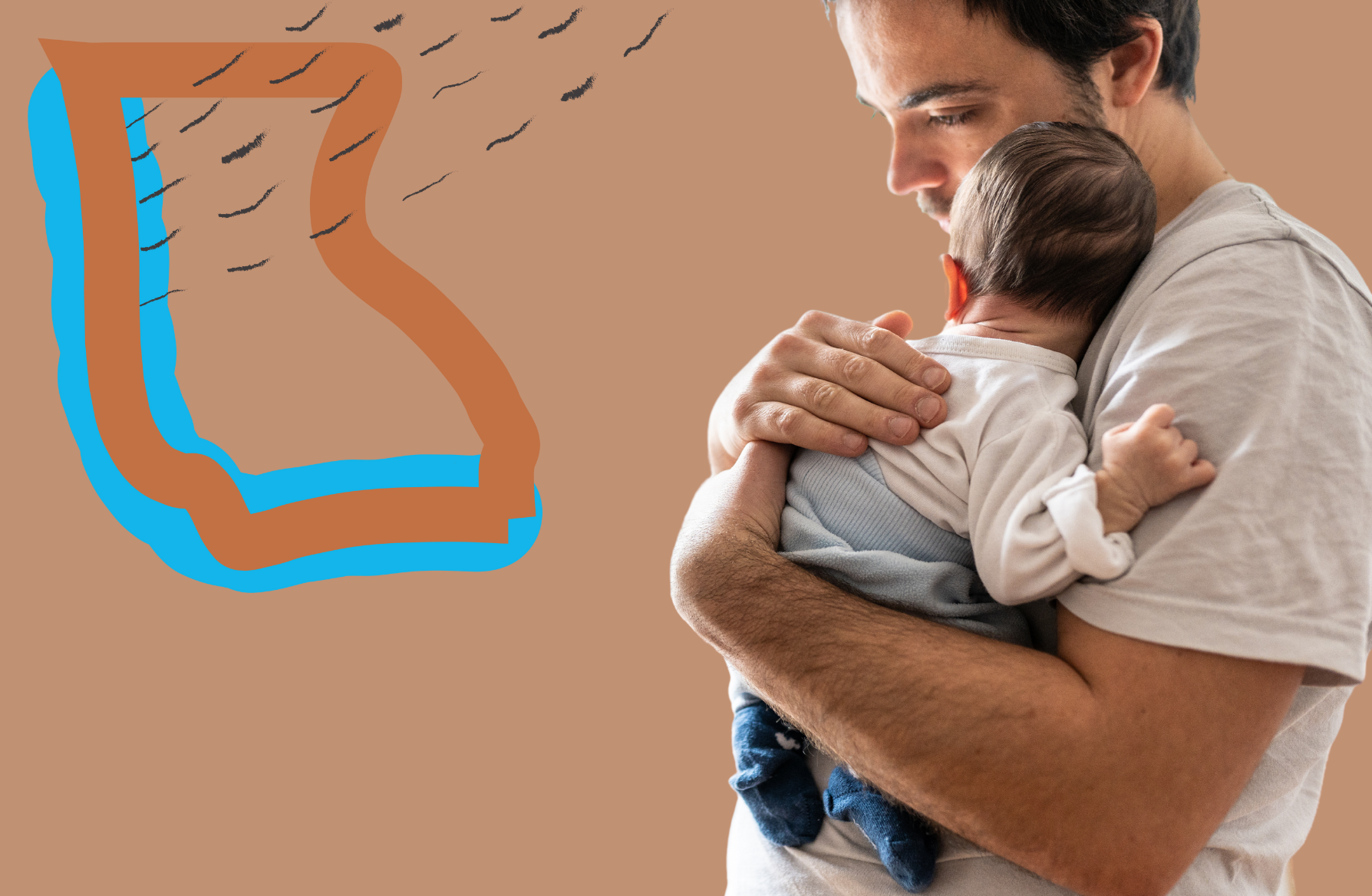Dad Wellbeing - Lessons from Bluey and Bandit

BanditAh, cheese and crackers…
The transition to fatherhood can be challenging with mental health issues high in this group. Some research indicates that as many as 1 in 5 dads experience symptoms of anxiety and/or depression during the perinatal period.
New dads have to navigate a significant shift in their identity and understanding of themselves and their role in the world, all while managing competing demands and increased stress. What’s more, the pressures of modern-day fatherhood bring with them increasing complexity for new dads.
What it means to be a dad has shifted over the past few decades, and overall, we are seeing dads playing a different and more active role in parenting. The traditional archetype of the distant, stoic father has evolved into a more nurturing, hands-on figure.
Reflecting the changing dialogue around fatherhood, we’re observing more conversations about what it means to be a dad in the media. Australian comedian Hamish Blake hosts the How Other Dads Dad podcast, where he chats with other dads he admires to learn about their approach to “Dadding”.
In a recent episode Blake interviews Joe Brumm, the creator of Australia’s favourite family show, Bluey, and the architect behind Bluey’s dad, Bandit. Seen by some as the modern-day father archetype, Bandit is a caring and involved father and across everything in family life.
He exemplifies the modern-day all-in type of fathering that we’re seeing more of. This all-in shift, while advantageous for family dynamics and childhood development, is a change that may leave new dads navigating parenthood without a blueprint. This can add to the stress and isolation that some dads already feel when taking on this new role, increasing their vulnerability to mental health challenges.
Enhancing readiness for fatherhood and bolstering relational support and well-being during the perinatal period has the potential to improve the overall experience and outcomes for new fathers and their families.
New or expectant parents who are able to prioritise their well-being, nurture their couple or co-parenting relationship, stay connected to their social supports, and seek help where needed can set themselves up well for navigating the transition to becoming a father, and beyond.
Four Ways to Enhance Paternal Wellbeing
1. Prioritise Self-Care
Taking care of yourself is not only beneficial for your own mental state, but also for your ability to support your partner and nurture your child. Engage in activities that bring you joy, practice mindfulness techniques, get outside and get your body moving, and safeguard sleep where possible. Father’s who are more proactive in coping with stress are likely to experience greater well-being.
2. Nurture the Couple relationship
Acknowledging the shift from a couple to a family dynamic helps to prepare for the changes to come. While openly sharing thoughts and concerns allows you to foster mutual understanding and support. Consistently nurturing your relationship by prioritising one-on-one time can enhance parental support and connection, improving relationship satisfaction and having a positive impact on family dynamics.
3. Build and Strengthen Social Connections
Positive relationships play a crucial role in well-being. Maintaining strong social connections during the perinatal period may improve mental health. Engaging with fellow fathers, joining support groups, and participating in activities that allow you to connect with others who are going through similar experiences can all improve your well-being.
4. Seek Support
The stigma surrounding men discussing their emotions is thankfully gradually diminishing. Seeking support from a friend, family member or a professional when you’re feeling overwhelmed can be an important step in looking after your own well-being, and thus also protective for the family.





